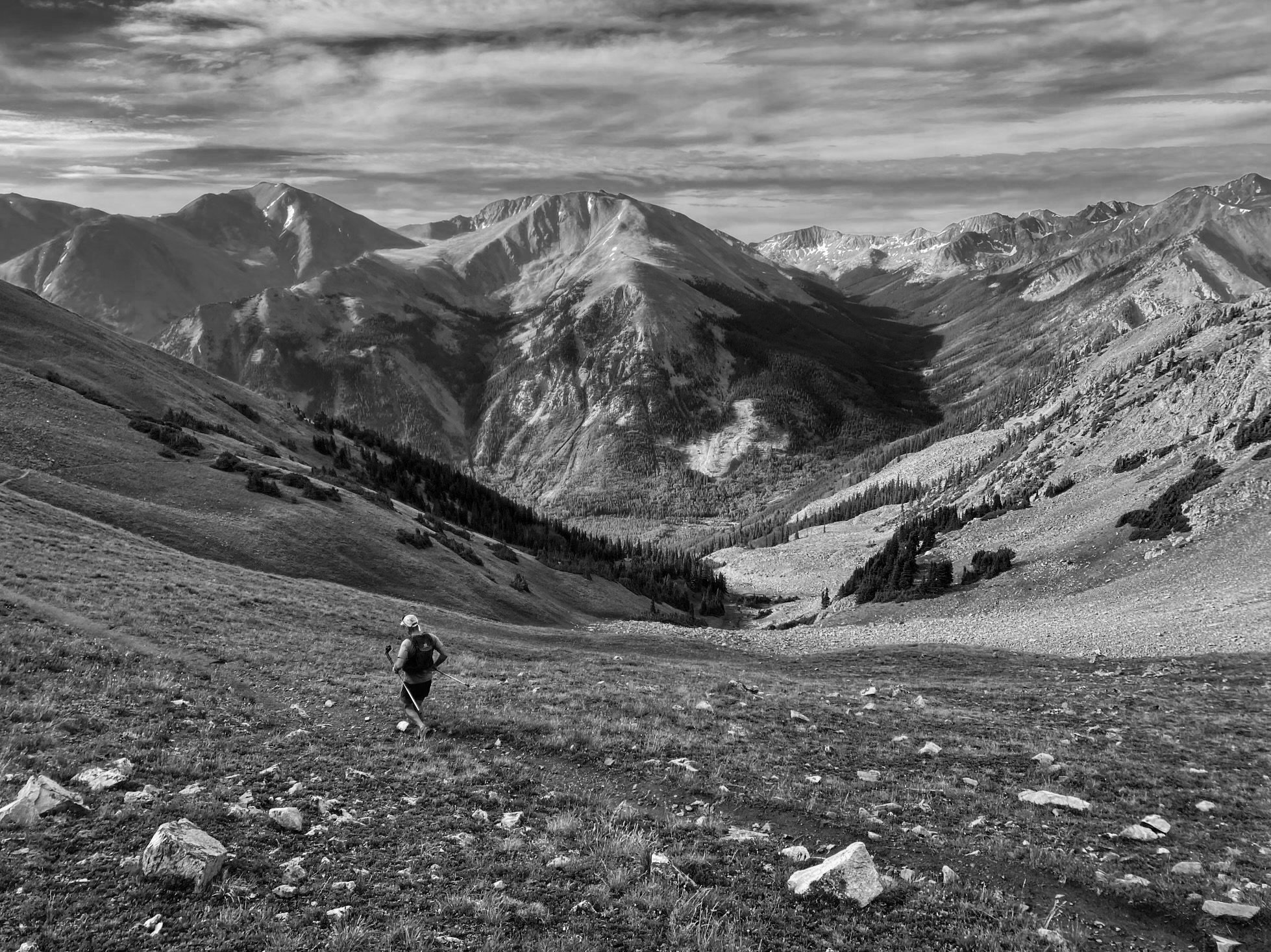
about - Neal Palles, LCSW, CMPC
About Neal
I’m a licensed clinical social worker and Certified Mental Performance Consultant® (CMPC) with 20+ years in mental health and 15 years in outdoor and adventure education. I work with runners, mountain athletes, and other high performers who want a healthier, more effective relationship with their mind — in sport and in life.
I’m Also an Athlete
My roots are in the mountains: rock climbing, mountaineering, skiing, rafting, running, and mountain biking. These days, I’m deep into trail and ultrarunning. I also coach ultrarunners with Carmichael Training Systems.
Part of why this work matters to me is personal. I was diagnosed with learning disabilities in high school, and for a long time I struggled in traditional environments — distracted, frustrated, and feeling like I didn’t quite fit or focus the way I was “supposed to.” Things shifted when I stepped outside. Rock climbing, mountaineering, and eventually endurance sport gave me a place where focus, effort, and intensity finally made sense.
That experience shapes how I work with athletes today — especially those whose minds are fast, intense, creative, and sometimes exhausting. Many of the runners and mountain athletes I work with — including athletes with ADHD or ADHD‑like traits — find sport regulating, but still struggle with anxiety, overthinking, emotional intensity, or consistency in performance and life.
Being both a clinician, athlete, and coach means I get it — the pressure, the overthinking, the identity stuff, the mental spirals that don’t show up on a training plan. I work with athletes in real environments, not just an office.
I’m based in Longmont, Colorado with my wife, daughter, and two very high‑energy labradors. You’ll still find me racing ultras, mountain bike races, riding trails, and hanging out at a crag.
I’m based in Longmont, Colorado with my wife, daughter and two high energy labrador retrievers. You’ll still can find me racing ultra’s, road-races, mountain bike and gravel races on the track and slopes on the side of cliffs and in the climbing gym.
My mission is to help runners and mountain sport athletes overcome mental roadblocks and setbacks so they can focus on things that matter to them, whether that be in sport or other areas of life.
My Approach
My work is straightforward, practical, and human.
I don’t lead with labels, diagnoses, or standardized tests. That’s not my style. Instead, we focus on what’s actually getting in your way — pushy thoughts, intense emotions, self‑doubt, anxiety, burnout — and build skills so you can respond differently and move toward what matters.
Psychotherapy
Psychotherapy is for athletes who want support with anxiety, mood, identity shifts, injuries, burnout, or patterns that affect life beyond sport. The focus is on relief, insight, and building skills that support long‑term well‑being — not just better performance.
Mental Performance Coaching
Mental performance coaching is for athletes who are generally doing well, but want to sharpen focus, confidence, consistency, and decision‑making under pressure. This work is skills‑based, goal‑oriented, and centered on performance rather than mental health treatment.
If you’re not sure which fits, we can sort that out together.
What It’s Like to Work With Me
I’m lighthearted, direct, and compassionate. We’ll probably laugh at some point — and yeah, sometimes things get real.
I’ll ask hard questions and challenge you when it matters, because growth doesn’t come from staying comfortable. Early on, we usually meet weekly to build momentum, then space sessions out as things solidify. Many clients stick around long‑term, even if we meet only every few months.
Why I Do This
My mission is to help runners and mountain sport athletes move through mental roadblocks and setbacks so they can focus on what actually matters — in sport and in life.
If you’re curious, have questions, or want help deciding what kind of support makes the most sense, you’re welcome to schedule a free 20‑minute discovery call. It’s simply a chance to connect and see if working together feels like a good fit.

Highlights
Masters of Social Work and Licensed Clinical Social Worker - Colorado
Certified Mental Performance Consultant® (CMPC) through The Association for Applied Sport Psychology
Masters of Arts in Applied Sport Psychology
Listed in the USOPC Mental Health Directory
Mindful Sport Performance Enhancement Instructor
UESCA Certified Ultra-running and Cycling Coach
USADA Anti-Doping Education
Member, Association for Applied Sport Psychology


